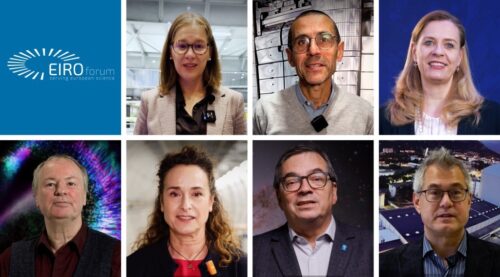 In a video released on 10 November 2025, senior leaders from across EIROforum organisations have come together to thank those in our member states and beyond for their trust and support.
In a video released on 10 November 2025, senior leaders from across EIROforum organisations have come together to thank those in our member states and beyond for their trust and support.
Together, they reflect on the impact this trust has made possible and share their hopes for science by 2050.
Watch the video and hear from:
Charlotte Lindberg Warakaulle, Director for International Relations at the European Organisation for Nuclear Research (CERN), highlighting how more than 5,000 students and young graduates are trained every year through CERN’s programmes.
Peer Bork, Director General at the European Molecular Biology Laboratory (EMBL), explains how the trust and support of Member States helps bring scientists in different disciplines together to make the world a better place for generations to come.
Xavier Barcons, Director General at the European Southern Observatory (ESO), sharing how trust in science has enabled discoveries about exoplanets, distant galaxies, and black holes – and the creation of the world’s largest optical and infrared telescope, which is now 70 percent complete.
Gema Martinez-Criado, Director of Research at the European Radiation Synchrotron Facility (ESRF), reflecting on how trust in science allows researchers to improve battery efficiency for a clean energy transition and explore the fundamental chemistry behind environmental pollution.
Gianfranco Federici, Programme Manager at EUROFusion, thanking citizens for their trust which enables Europe to lead in fusion energy, and sharing the hope that the world will fully embrace fusion energy by 2050.
Sakura Pascarelli, Scientific Director at the European X-ray Free-Electron Laser Facility (European XFEL), highlighting how the trust and support of Member States has made it possible to visualise the motion of atoms and molecules for researchers around the world.
Ken Andersen, General Director at Institut Laue-Langevin (ILL), explaining how trust in science allows ILL to use the brightest neutron beams in the world to expand boundaries of knowledge – and hopes to achieve carbon neutrality by 2050.
